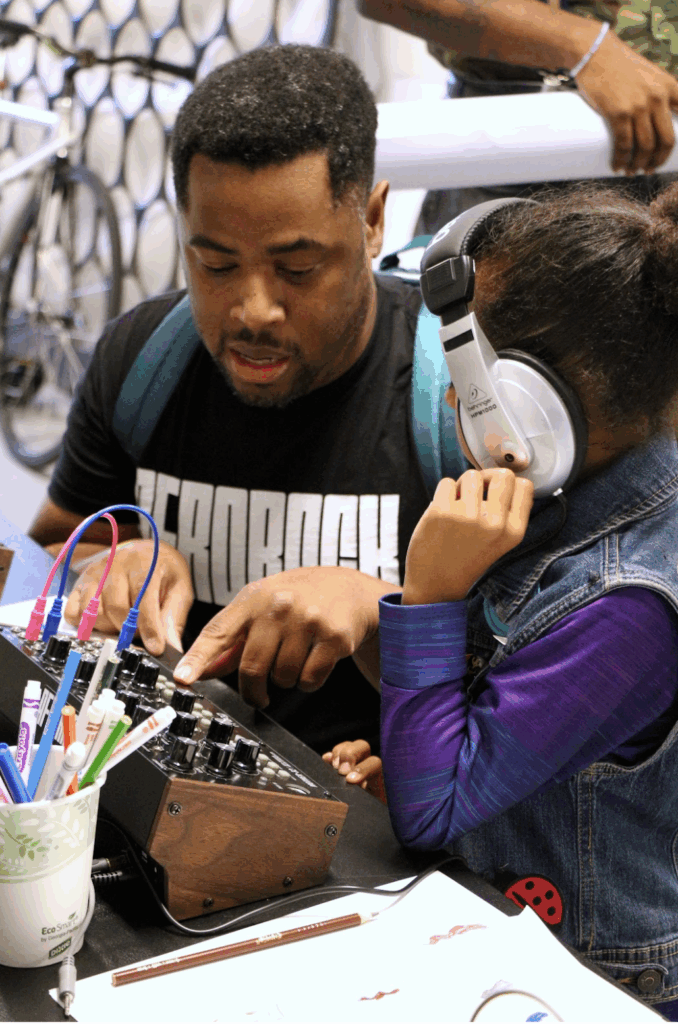As the founder and executive director of AFRORACK™, Aaron does more than give talented young African American students access to modular synthesis education. With more than 15 years of professional sound for cutting-edge directors and ground-breaking advertising agencies, he’s obsessed with innovating new ways of creating engaging experiences. Aaron represents the new and defining vision for STEM education, a composite style that bridges the gap between communities of color and equity opportunities in the tech industry.
COTFG – What were your musical or general artistic influences for your historical work or current projects?
Aaron – I remember seeing a segment about movie magic and how the Hollywood sounds were made. They had collections of objects and sound-making contraptions the folly artists used for the ’70s, 80’s sci-fi films. Commercials. Westerns. All those things. That right there—being able to visually connect physical objects to the sounds, was really inspirational. I found ways of pulling a lot of that expression into my own practice.
What other ways of expression do you hope to explore using recorded video or live streaming?
Cartoons. Animation. It’s a timeless art form and an extraordinary communication tool. During 2020, we weren’t doing many live streams. I hosted something for Ghostly Records and a few other things. Still, the focus was on our animation division. AFRORACK™ is committed to designing meaningful and exciting ways of delivering modular synthesis concepts. We chose a unique approach of adapting our students’ stories to animation.The idea was to create this sort of feedback loop. The students’ interpretation of sound is transformed into visuals, then those images are shared and re-examined. It’s really cool, and we’re very excited about the possibilities. Maybe something more will grow from all this. Something unexpected and new. The animations are entirely silent; there’s no language or sound at all. Purely visual.
What have you been listening to lately?
During the first half of the year, during the lockdown, I listened to a lot of MoMa Ready and AceMo. It was so cool because it felt very new, but at the same time, it felt familiar and comforting. I think that’s why I was so drawn to it. Their music was the soundtrack to my COVID lockdown experience. It definitely inspired me and kept me going.
Towards the end of 2020 and into the new year, I worked with an artist, Ali The Architect (who’s also one of our AFRORACK™ instructors), on his debut album. He does all his work on the modular. Ali creates these textured beat-driven compositions. He’s definitely exploring and playing in a lot of different genres; it’s really difficult to predict where he’s going from track to track. Ali, without a doubt, released one of the most impressive modular albums so far this year; there’s nothing like it out there. He’s a brilliant artist; you just have to experience it. The album is called “The Interstellar Orchestra.” Check it out—you gotta check it out.
What does experimental/avant-garde mean to you?
Something that challenges how the medium can be used. A significance in the way that the sound communicates with the participant or interacts with the environment. It definitely means taking the listener out of their comfort zone. What we hear should also make us think critically and become the basis for new conversations.

Photo by Angela Mejia
You can find more about AFRORACK™ on their website and Instagram.
They accept donations to support their mobile STEM education workshops here.